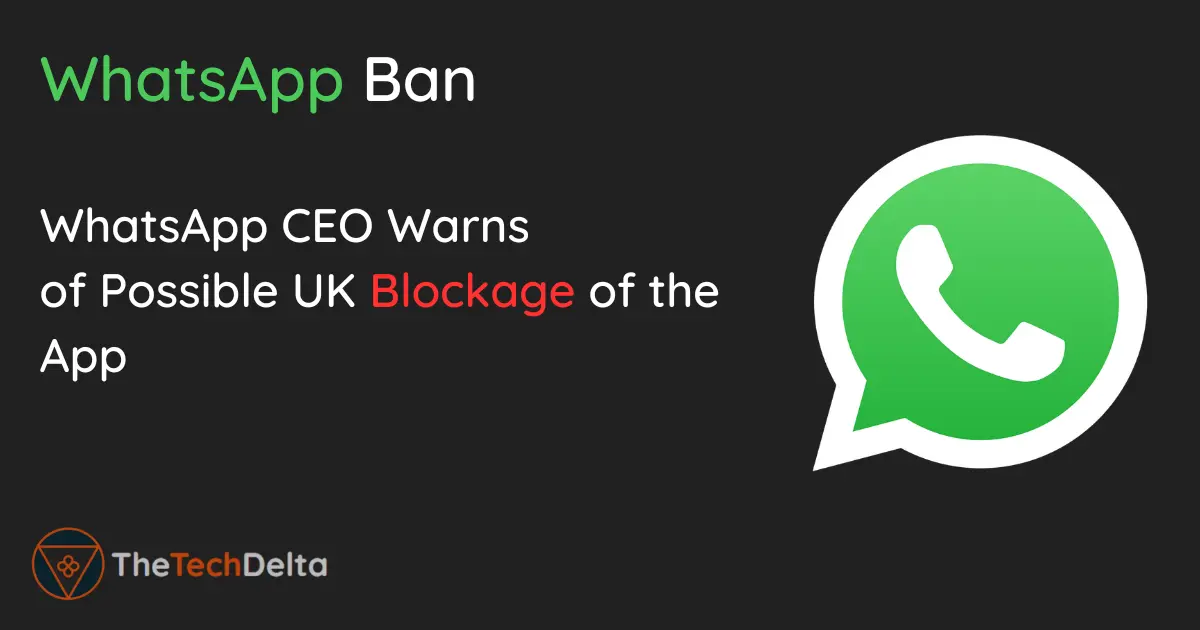WhatsApp users in the United Kingdom could face a potential ban on the app, according to recent statements made by the company’s CEO, Will Cathcart. This announcement has raised significant concerns, as WhatsApp is a popular communication platform that is widely used in the UK.
The issue at hand is the UK government’s proposed legislation that would require social media platforms to weaken their encryption protocols, which would allow for easier access to users’ private messages. WhatsApp, which is known for its end-to-end encryption, has expressed concerns that complying with these laws would require them to compromise the security and privacy of their users’ messages.
let’s dive deeper into the issue and explore it in detail
WhatsApp Willing to be Blocked in the UK to Maintain Security Measures
WhatsApp, the most popular messaging platform in the UK, is facing potential conflicts with the UK government’s proposed “Online Safety Bill.” This bill, which is currently awaiting parliamentary approval, requires social media platforms to scan messages for child abuse and terrorist materials. In order to comply with this demand, messaging platforms such as WhatsApp would have to lower their message security and withdraw encryption for chats.
However, WhatsApp CEO, Will Cathcart, has expressed his disagreement with this bill and announced that they will not comply with it if it gets passed. Cathcart argues that scanning users’ messages means compromising the privacy of encrypted messages, which goes against WhatsApp’s end-to-end encryption policy. In an official statement, Cathcart said, “We won’t lower the security of WhatsApp. We have never done that – and we have accepted being blocked in other parts of the world.“
Cathcart further explained that about 98% of WhatsApp’s users are located outside the UK, and they have never demanded any compromise on the product’s security. Cathcart is willing to accept the risk of being blocked in the UK rather than weaken the security of WhatsApp, which could potentially endanger its users’ privacy.
WhatsApp’s end-to-end encryption policy ensures that the company cannot review or check the contents between chats, even though they are running the service. Therefore, Cathcart’s concerns are valid, as the company would have to fundamentally alter the nature of its platform to comply with the UK government’s proposed legislation.
Conclusion
The situation remains uncertain, and it is unclear how the UK government will respond to WhatsApp’s stance. However, it is clear that WhatsApp and its users in the UK are facing a significant threat to their privacy and security.



